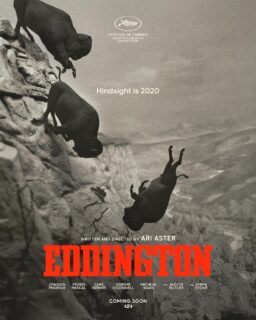One of the remarkable things about art is its ability to open the door to worlds you might not otherwise enter. Sometimes you enter a wardrobe and wind up in Narnia. Sometimes you find yourself in wandering the grounds of a stately English manor in the Regency era. And sometimes you find yourself in a prestigious investment firm in London. To this writer, that’s a foreign country, and not just because it’s across the pond. But you need not know anything about financial securities, trading, or I don’t know, the state of the pound as compared to the dollar to understand that people get chewed up and spit out in pretty much any industry. And that’s key to “Industry,” a bitter pill of a series from co-creators Mickey Down and Konrad Kay. Everything’s a commodity, and that includes people.
“Industry” centers on a class of recent graduates competing for a handful of permanent positions at the same high-profile firm—the kind of opportunity likely to make their careers in the lucrative world of international finance—and the series doesn’t make it easy to like these people. But your fondness, or lack thereof, isn’t really the point. Imagine the early days of “Grey’s Anatomy,” in which a bunch of young, driven, cutthroat future surgeons compete against, tryst with, and love and hate each other; now make them people who consider “Succession” aspirational (and not a comedy). That’s the show. In the four episodes provided for review, they’re confronted, if not constantly assailed, with the grim realities of the path they’ve chosen, and issues of race, class, gender, sex and sexual orientation, morality, greed, and the unfeeling machinery of corporations surface within minutes and remain present throughout. As one of the young grads say to another, shortly before a protestor douses them in blood-red paint for their sins, “Surely you know we entered a career that connoted, you know, c-ntiness.”
But it would be reductive to say they’re all constantly loathsome. Two cases in point: Harper (relative newcomer Myha’la Herrold, excellent), a young Black American woman whose unconventional background, brilliant mind, and ruthless streak catch the professional eye of the high-flying Eric (Ken Leung of “Lost”), and Yasmin (Marisa Abela, also very good), whose good looks and soft-spoken nature see her too often manipulated or dismissed by her peers, a state of affairs that pushes her to grab for control in the more intimate moments of her life. Yet even the characters whose faces seems especially punchable (thinking especially of Harry Lawtey’s entitled party boy Robert here, but it’s not a short list) are thoughtfully shaded and sometimes surprising. The pilot (ably directed by Lena Dunham) details exactly how dangerous a world they’ve all entered, and while they chose it for themselves, “Industry” makes it damn near impossible to not fear for these young monsters at every turn.
That’s especially true in Harper’s case. It’s fair to say that “Industry” simply wouldn’t work without Herrold, who manages the neat trick of making Harper largely unreadable by many of her peers and an open book to the audience. Herrold and the show’s writers demonstrate a total lack of concern for making Harper sympathetic, and it’s precisely that which makes her so engaging. It’s easy to find yourself rooting for Harper to continue to make big moves, even when you know you should be rooting for her to get the hell out while she can, as if a person who proudly trumpets the 8,000-word essay she wrote on the moral case for capitalism is likely to end up working for a nice cozy non-profit somewhere. It’s a performance devoid of vanity and laced through with dry humor, and if the entertainment industry has any sense at all, this series will make her a star.

While there’s not a bad performance in the bunch—Leung, Abela, Freya Mavor, and David Jonsson are particular standouts—the fine acting doesn’t render “Industry” appointment-viewing. There’s a frustrating and probably deliberate sameness to the first three episodes in particular; characters often repeat the same beats in new configurations again and again, which adds thematic richness while also making each episode feel a bit stale. The proceedings of “Industry” have a level of soapiness with a similar push-and-pull effect: the sex, drugs, shame, and drama may reel you in, but there’s only so much of each in this hateful world that one can take before wishing you were watching something a little less repellant, like cable news or “Cops.”
It’s possible—this writer would even say likely—that this last problem diminishes as the season progresses and these characters get to know each other and themselves better; the excellent fourth episode in particular promises more complex power dynamics and a more thoughtful dissection of class and race than the three preceding episodes manage. Given the somewhat quieter fall television season, it’s definitely worth toughing out the endless lines of coke to see what happens next, but even in a typical year Herrold would earn “Industry” the benefit of the doubt. This world may not be one that’s attractive to you, but “Industry” makes it abundantly clear why it’s one that’s attractive to Harper: wealth is its own door into Narnia, a gateway out of struggle and hardship. One need only short sell one’s soul to get here.
Four episodes screened for review.












